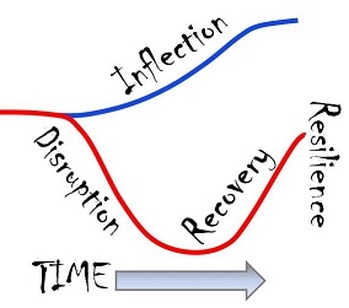
A few weeks ago I came across an article that described an interview-based study in which participants had been asked to identify seven significant events in their life and then construct a narrative of their life using these events as a structure. Inevitably, events that were chosen were times of significant change. I thought this was a great reflective tool and came up with eighteen events over my lifetime that either caused me to create a new or modified pathway though life and/or changed my behaviour in a significant way, which meant I changed my attitude and approach to life and therefore lived it differently. Through this process I identified two different types of life changing events which I'm calling inflections and disruptions.
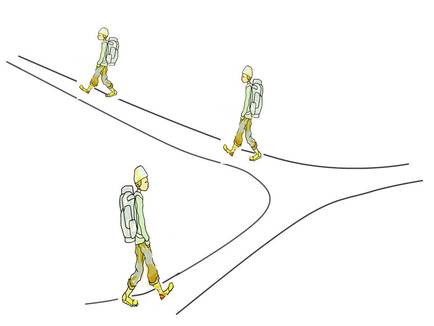
Inflections are points in your life where events and decisions take you in a different direction, altering the course of at least one aspect of your life - like education, a job or significant relationship. Characteristically they engender positive feelings of hope, adventure and opportunity as you are propelled into and along a new trajectory. They require you to go through a transition which may or may not be easy to make but the transition is generally accompanied by feelings of excitement and interest about what might be rather than a sense of loss for what has been. Applying for, securing and settling into a new job are important inflection points in life, in so far as they provide new contexts for experiences, social interaction, problem solving and challenges and require transition which impacts on identity, confidence and capability.
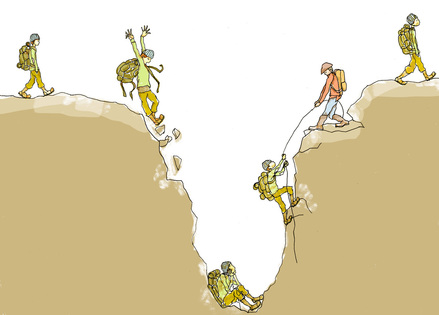
Disruptions, on the other hand, are events that are either thrust upon us by circumstances beyond your control - like serious illness, injury and death, or new situations that you voluntarily enter - like ending one career and starting another, or moving overseas to begin an entirely different life.
Disruptions require us to go through a process of transformation that engender a deep sense of loss as you leave something of yourself behind and try to adjust to new unfamiliar situations and an uncertain future. Disruptions are psychologically more disturbing because emotions are more negatively charged and they often pose significant challenge to our sense of who we are and are likely to require considerable resilience to overcome them.
I have experienced many more inflections in my life than disruptions. I came up with a list of 14 inflection points and 4 significant disruptions.
Inflection points occurred three times during my secondary schooling and on each occasion there was a circumstance in which a teacher believed in me sufficiently to give me a chance and help create opportunity for me which took me on a new pathway without feeling any sense of loss for the past. Inflection points in my life also determined my pathway to a PhD and to my first professional role and 8 years of living in Saudi Arabia. Important inflection points occurred when I met the first girl who I decided to marry, and also, after her untimely death at the age of 48, when I met and married my second wife and entered her family. Inflections also occurred as each of my children were born and we grew from a couple into a family since becoming a parent and caring for children has a significant impact on our experiences, identity and behaviours.
"Very few people see inflection points as the opportunities they often are: catalysts for changing their lives; moments when a person can modify the trajectory he or she is on and redirect it in a more desirable direction. Whether it's a new job, a change in a relationship, or something else, an inflection point is one of those periodic windows of opportunity when a person can pause, reflect, and ask: '... do I want to continue on this path or is now the moment to change direction?"(2)
It's hard to remember what you thought as a child, but now I think I did realise at the time (aged 12) when I was in my first inflection point, that I was at crossroads and that the decision I was making would alter the course of my life. I could see that there were opportunities for me to take although I could only appreciate the full potential in the change I made when I look back. As Soren Kierkgaard once said 'Life can only be understood backwards [after it has been] lived forwards'
Turning to the disruptions in my life I have experienced several of my own making. The first occurred when my family and I left Saudi Arabia and I gave up a job I enjoyed, many good friends and a lifestyle we had grown accustomed to come back to a period of great uncertainty. The second, when I was 40, and I fundamentally changed my career. The first 12 months were the hardest of my professional life. I had to give up being the professional geologist I had invested heavily in becoming and there were enormous feelings of loss alongside the stress, uncertainty and at times exhaustion I was experiencing. But the biggest disruption I have so far had to cope with was the loss of my first wife to cancer in 1999. When she died, a significant part of me died with her and I know that I became a different person to the person I was when she was alive. While outwardly it might have looked as if I had coped well with my loss, I mostly kept how I felt to myself. I lost my enthusiasm for life for a while and within a few months I had decided to move on to another role in another organisation - I think, in part, to escape the past.
Looking back on my life, I can now see how all these inflection points and disruptions were the triggers for new experiences and pathways through life. Many, but not all, of these points required me to go through a transition that was not enjoyable or comfortable and was sometimes full of anxiety and stress. All of them changed me to varying degrees and in various ways. All required me to learn and develop as a person. Many required me to develop myself professionally for new roles and to relinquish an identity and begin to form a new identity. It seems to me that inflections with all the promise they hold, are important points for creativity as we have to recreate ourselves and develop entirely new ecologies for learning and flourishing. They open new contexts for problem solving and self-expression, new sets of social relationships and new problems to solve. Effectively they move us into the territory of unfamiliar contexts and/or unfamiliar problems and opportunities which have potential to stimulate imagination and new and novel action. On the other hand significant disruptions are often periods when creativity may die within us as our desire to flourish is overwhelmed by our sense of loss and dislocation, and/or the practical need to survive in a chaotic situation. In such situations we may lack the motivation to do anything other than hold ourselves together and survive.
But even in our most difficult moments our resilience can perhaps be a source of motivation. I remember after my wife died thinking that the source of my creativity had died with her, and then pouring all my imagination and feelings into a memorial garden. The joy of imagining it combined with the sweat and slog of digging out a large pond and channel and then landscaping it with great care over a long summer, helped me come to terms a little with my loss and I was still able to think I was doing it for her. Perhaps, my creativity came to my assistance to help me through the lowest point of my life.
It is very different when we are in control of our own disruption, for example when voluntarily decide to disrupt our life by seeking to change direction and deliberately create new contexts for ourselves, for example when we swap one job or role for another. I remember at least two occasions where I was able to carry ideas and beliefs developed in one role into another where I could apply them in ways that would not have been possible had I stayed in the previous role. The new context provided me with new contexts, resources, challenges and opportunities for creativity and there is no doubt that I developed myself in the process.
Most of our life is conducted in a landscape of stability, routines and evenness, but there are times when this stability and evenness is punctuated by inflections and disruptions which have a profound influence on who we are. Furthermore, they alter our path across this landscape and sometimes alter the way we travel along it, so that who we eventually become is different to who we might have been. In this way they exert a strong influence on our uniquely personal learning and development trajectory, and what we accomplish in the contexts we have chosen or been forced to inhabit.
1) Exploring Disruption and Resilience Lifewide Magazine December 2014
2) Taking Advantage of Life’s (Few and Far Between) Inflection Points Howard's Gift: Uncommon Wisdom to Inspire Your Life's Work, By Eric C. Sinoway http://hbswk.hbs.edu/item/7041.html
Illustrations by Kiboko HachiYon
Norman Jackson 19/12/14
@lifewider1
@academiccreator
Disruptions require us to go through a process of transformation that engender a deep sense of loss as you leave something of yourself behind and try to adjust to new unfamiliar situations and an uncertain future. Disruptions are psychologically more disturbing because emotions are more negatively charged and they often pose significant challenge to our sense of who we are and are likely to require considerable resilience to overcome them.
I have experienced many more inflections in my life than disruptions. I came up with a list of 14 inflection points and 4 significant disruptions.
Inflection points occurred three times during my secondary schooling and on each occasion there was a circumstance in which a teacher believed in me sufficiently to give me a chance and help create opportunity for me which took me on a new pathway without feeling any sense of loss for the past. Inflection points in my life also determined my pathway to a PhD and to my first professional role and 8 years of living in Saudi Arabia. Important inflection points occurred when I met the first girl who I decided to marry, and also, after her untimely death at the age of 48, when I met and married my second wife and entered her family. Inflections also occurred as each of my children were born and we grew from a couple into a family since becoming a parent and caring for children has a significant impact on our experiences, identity and behaviours.
"Very few people see inflection points as the opportunities they often are: catalysts for changing their lives; moments when a person can modify the trajectory he or she is on and redirect it in a more desirable direction. Whether it's a new job, a change in a relationship, or something else, an inflection point is one of those periodic windows of opportunity when a person can pause, reflect, and ask: '... do I want to continue on this path or is now the moment to change direction?"(2)
It's hard to remember what you thought as a child, but now I think I did realise at the time (aged 12) when I was in my first inflection point, that I was at crossroads and that the decision I was making would alter the course of my life. I could see that there were opportunities for me to take although I could only appreciate the full potential in the change I made when I look back. As Soren Kierkgaard once said 'Life can only be understood backwards [after it has been] lived forwards'
Turning to the disruptions in my life I have experienced several of my own making. The first occurred when my family and I left Saudi Arabia and I gave up a job I enjoyed, many good friends and a lifestyle we had grown accustomed to come back to a period of great uncertainty. The second, when I was 40, and I fundamentally changed my career. The first 12 months were the hardest of my professional life. I had to give up being the professional geologist I had invested heavily in becoming and there were enormous feelings of loss alongside the stress, uncertainty and at times exhaustion I was experiencing. But the biggest disruption I have so far had to cope with was the loss of my first wife to cancer in 1999. When she died, a significant part of me died with her and I know that I became a different person to the person I was when she was alive. While outwardly it might have looked as if I had coped well with my loss, I mostly kept how I felt to myself. I lost my enthusiasm for life for a while and within a few months I had decided to move on to another role in another organisation - I think, in part, to escape the past.
Looking back on my life, I can now see how all these inflection points and disruptions were the triggers for new experiences and pathways through life. Many, but not all, of these points required me to go through a transition that was not enjoyable or comfortable and was sometimes full of anxiety and stress. All of them changed me to varying degrees and in various ways. All required me to learn and develop as a person. Many required me to develop myself professionally for new roles and to relinquish an identity and begin to form a new identity. It seems to me that inflections with all the promise they hold, are important points for creativity as we have to recreate ourselves and develop entirely new ecologies for learning and flourishing. They open new contexts for problem solving and self-expression, new sets of social relationships and new problems to solve. Effectively they move us into the territory of unfamiliar contexts and/or unfamiliar problems and opportunities which have potential to stimulate imagination and new and novel action. On the other hand significant disruptions are often periods when creativity may die within us as our desire to flourish is overwhelmed by our sense of loss and dislocation, and/or the practical need to survive in a chaotic situation. In such situations we may lack the motivation to do anything other than hold ourselves together and survive.
But even in our most difficult moments our resilience can perhaps be a source of motivation. I remember after my wife died thinking that the source of my creativity had died with her, and then pouring all my imagination and feelings into a memorial garden. The joy of imagining it combined with the sweat and slog of digging out a large pond and channel and then landscaping it with great care over a long summer, helped me come to terms a little with my loss and I was still able to think I was doing it for her. Perhaps, my creativity came to my assistance to help me through the lowest point of my life.
It is very different when we are in control of our own disruption, for example when voluntarily decide to disrupt our life by seeking to change direction and deliberately create new contexts for ourselves, for example when we swap one job or role for another. I remember at least two occasions where I was able to carry ideas and beliefs developed in one role into another where I could apply them in ways that would not have been possible had I stayed in the previous role. The new context provided me with new contexts, resources, challenges and opportunities for creativity and there is no doubt that I developed myself in the process.
Most of our life is conducted in a landscape of stability, routines and evenness, but there are times when this stability and evenness is punctuated by inflections and disruptions which have a profound influence on who we are. Furthermore, they alter our path across this landscape and sometimes alter the way we travel along it, so that who we eventually become is different to who we might have been. In this way they exert a strong influence on our uniquely personal learning and development trajectory, and what we accomplish in the contexts we have chosen or been forced to inhabit.
1) Exploring Disruption and Resilience Lifewide Magazine December 2014
2) Taking Advantage of Life’s (Few and Far Between) Inflection Points Howard's Gift: Uncommon Wisdom to Inspire Your Life's Work, By Eric C. Sinoway http://hbswk.hbs.edu/item/7041.html
Illustrations by Kiboko HachiYon
Norman Jackson 19/12/14
@lifewider1
@academiccreator
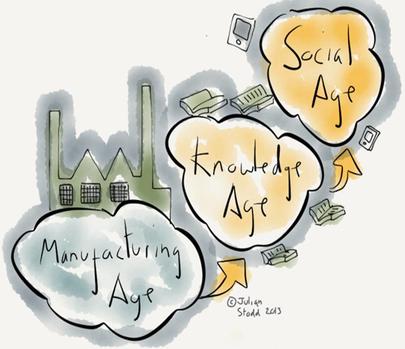
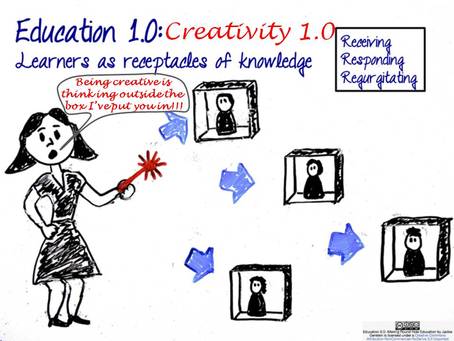
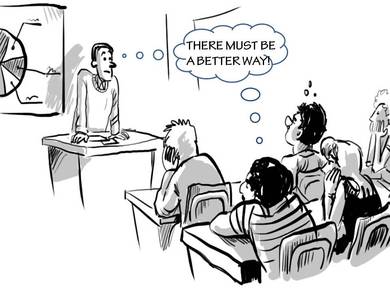
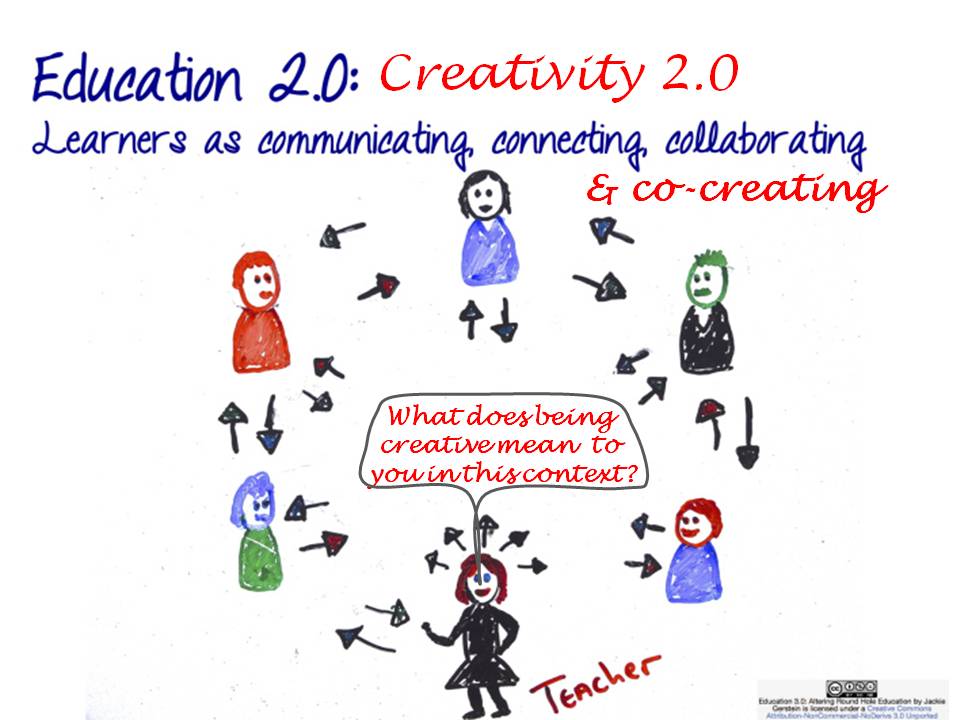
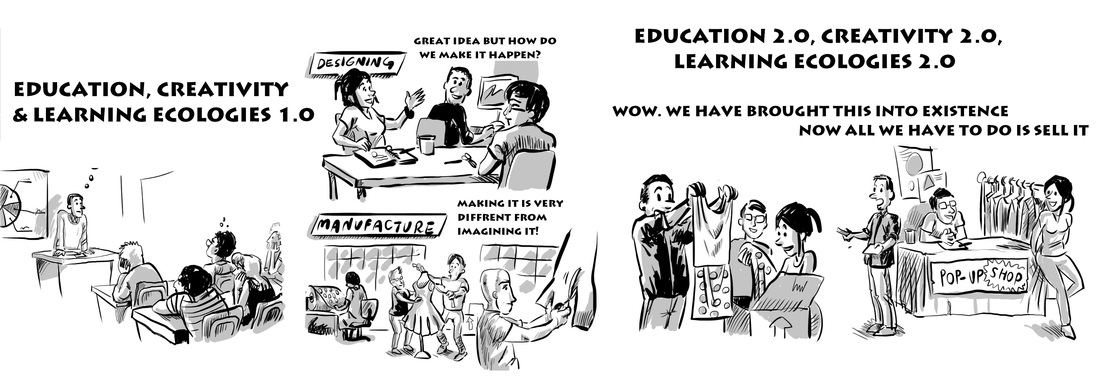
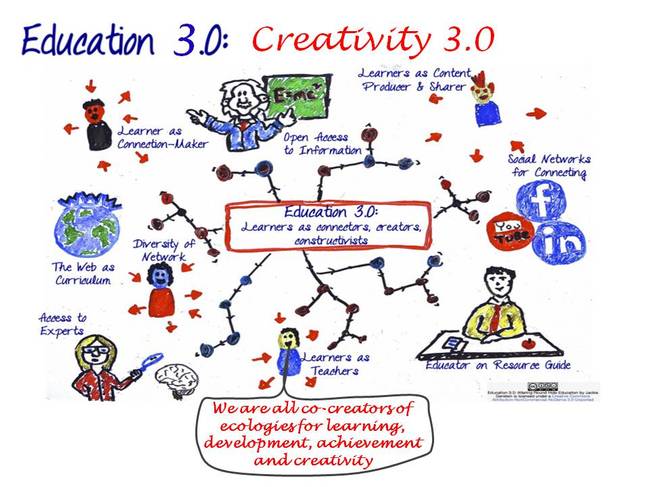
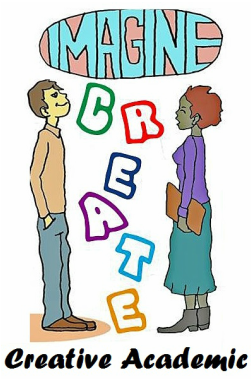
 RSS Feed
RSS Feed
